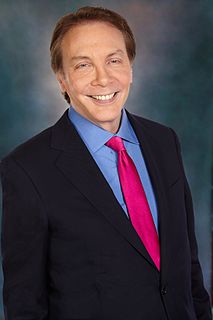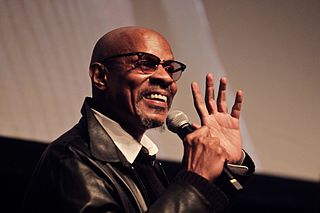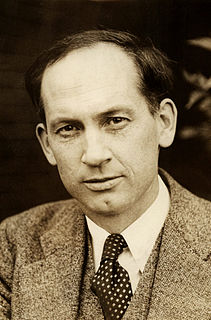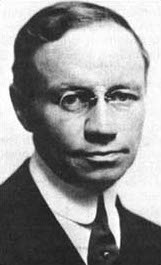Top 1200 Collective Knowledge Quotes & Sayings
Explore popular Collective Knowledge quotes.
Last updated on November 20, 2024.
Samadhi is the journey from individual to collective consciousness. The steps of Samadhi are the steps towards reaching the collective consciousness. In meditation, the more we radiate love, compassion, peace, harmony and tranquility, the more is our contribution towards the collective consciousness. The more we positively contribute towards the collective consciousness the more is our progress in Samadhi.
When speaking of a "body of knowledge" or of "the results of research," e.g., we tacitly assign the same cognitive status to inherited knowledge and to independently acquired knowledge. To counteract this tendency a special effort is required to transform inherited knowledge into genuine knowledge by revitalizing its original discovery, and to discriminate between the genuine and the spurious elements of what claims to be inherited knowledge.
It is easy to see, though it scarcely needs to be pointed out, since it is involved in the fact that Reason is set aside, that faith is not a form of knowledge; for all knowledge is either a knowledge of the eternal, excluding the temporal and historical as indifferent, or it is pure historical knowledge. No knowledge can have for its object the absurdity that the eternal is the historical.
The most common ego identifications have to do with possessions, the work you do, social status and recognition, knowledge and education, physical appearance, special abilities, relationships, person and family history, belief systems, and often nationalistic, racial, religious, and other collective identifications. None of these is you.
The library connects us with the insight and knowledge, painfully extracted from Nature, of the greatest minds that ever were, with the best teachers, drawn from the entire planet and from all our history, to instruct us without tiring, and to inspire us to make our own contribution to the collective knowledge of the human species.
Knowledge is sacred and the choice to be informed or merely entertained in today's world is a very revealing test of the times. Expanding your mind to penetrate the deeper meanings of life is not only liberating, it is crucial to your well-being, for knowledge is power, and how you use your power inevitably determines the course of your personal and collective life.
I don't believe in life after death. But I still enjoyed the idea of doing a movie that would portray that collective dream, that collective need. Like flying saucers are a collective need for people who need to believe in flying saucers. You don't need to believe in flying saucers to do a movie about Martians or flying saucers.
Knowledge is a burden if it robs you of innocence. Knowledge is a burden if it is not integrated into life. Knowledge is a burden if it doesn't bring joy. Knowledge is a burden if it gives you an idea that you are wise. Knowledge is a burden if it doesn't set you free. Knowledge is a burden if it makes you feel you are special.
Until society can be reclaimed by an undivided humanity that will use its collective wisdom, cultural achievements, technological innovations, scientific knowledge, and innate creativity for its own benefit and for that of the natural world, all ecological problems will have their roots in social problems.
Surely knowledge of the natural world, knowledge of the human condition, knowledge of the nature and dynamics of society, knowledge of the past so that one may use it in experiencing the present and aspiring to the future--all of these, it would seem reasonable to suppose, are essential to an educated man. To these must be added another--knowledge of the products of our artistic heritage that mark the history of our esthetic wonder and delight.
I am convinced that it is impossible to expound the methods of induction in a sound manner, without resting them upon the theory of probability. Perfect knowledge alone can give certainty, and in nature perfect knowledge would be infinite knowledge, which is clearly beyond our capacities. We have, therefore, to content ourselves with partial knowledge - knowledge mingled with ignorance, producing doubt.
You feel the communion of the collective consciousness in that moment when you're on stage doing something and the audience is absolutely with you. And the audience becomes a collective entity as well. They come in from separate places and socio-economic backgrounds, and places across the world and days that they've had, and then they come together and they become one collective thing, and experience something in a collective way.
It's worse than slave trade because what is being traded is the very knowledge that makes survival possible for 80 percent of the people of this world. These 80 percent live on the biodiversity and the knowledge they have evolved as part of a rich collective heritage involving the use of seeds for growing crops and medicinal plants for healing.
The collective unconscious appears to consist of mythological motifs or primordial images, for which reason the myths of all nations are its real exponents. In fact the whole of mythology could be taken as a sort of projection of the collective unconscious. We can see this most clearly if we look at the heavenly constellations, whose originally chaotic forms are organized through the projection of images. This explains the influence of the stars as asserted by astrologers. These influences are nothing but unconscious instrospective perceptions of the collective unconscious.
And if there be any addition to knowledge, it is rather a new knowledge than a greater knowledge; rather a singularity in a desire of proposing something that was not knownat all beforethananimproving, anadvancing, a multiplying of former inceptions; and by that means, no knowledge comes to be perfect.
The Spirit which is within you is a collective being and once you are awakened into the light of Spirit, you become a collective being. That means, on your finger tips you can feel the centers of others also as you can feel yourself. By knowing yourself you know the self knowledge, the inner self knowledge and by knowing others you are in collective consciousness.
The main characteristic of collectivism is that it does not take notice of the individual's will and moral self-determination. In the light of its philosophy the individual is born into a collective and it is "natural" and proper for him to behave as members of this collective are expected to behave. Expected by whom? Of course, by those individuals to whom, by the mysterious decrees of some mysterious agency, the task of determining the collective will and directing the actions of the collective has been entrusted.
























































